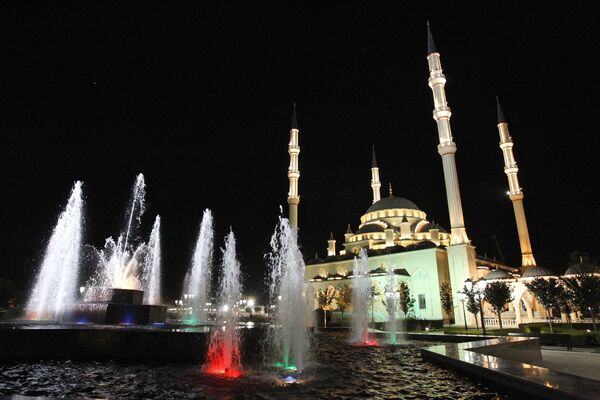MOSCOW, August 30 (RIA Novosti) – An apparently innocuous contest to select Russia’s best unknown tourist landmark has descended into acrimony after a North Caucasus mosque gathered tens of millions of votes, but narrowly lost at the last moment, prompting allegations of vote rigging from outraged Muslims, led by Chechen leader Ramzan Kadyrov.
A 16-century kremlin, or castle, in the city of Kolomna 100 kilometers (60 miles) southwest of Moscow, won the second round of the Russia 10 contest, which ended on Friday, with 38.6 million votes, according to the contest’s website.
It scored just 400,000 votes more than the Akhmad Kadyrov Mosque in Chechnya’s capital Grozny, which had led the running for most of the time since the contest started on July 1.
The Russia 10 vote sparked a war of words between Russian nationalists and Muslims on the Russian blogosphere and social networks, with heated debates raging about whether a mosque could qualify as a top Russian landmark.
The Chechen vote was actively promoted by republican authorities, including Ramzan Kadyrov, the son of the republic’s late president Akhmad Kadyrov who gave his name to the mosque.
Kadyrov claimed early Friday that cell phone operators had ignored some 4 million votes cast in favor of the mosque, denying it victory.
“This was nothing but fraud,” he said in a comment next to a photo of the mosque on Instagram, adding that Chechen lawmakers in the federal parliament will seek a criminal investigation into the matter.
A representative for the contest confirmed to RIA Novosti that Russia 10 had problems with tallying the votes cast through cellphone text messages (with repeat voting allowed), but claimed Chechnya was not the only region affected.
Chechnya, a predominantly Muslim region with a population of 1.3 million, went through two wars between separatists and federal Russian forces in the 1990s and 2000s. The insurgency was eventually suppressed under the Kadyrovs, though critics say that Ramzan Kadyrov only achieved peace in his republic by establishing a ruthless authoritarian regime with the Kremlin’s blessing.
Residents of the North Caucasus are often seen as something close to foreigners outside their home turf in Russia, historically a majority Christian country with a predominantly Slavic population.
The top sights in the Russia 10 voting also included a sculpture park called Legend in Penza Region in central Russia, as well as another mosque and one more kremlin, two other Christian landmarks, a Buddhist temple, a volcano and Lake Baikal, the world’s biggest body of fresh water by volume.
The controversy about what really is Russia’s finest unknown tourist sight is unlikely to fade soon, given that voters get their chance for a last say on the issue in third and final round of the vote that kicks off Sunday.
(The story has been changed from an earlier version to mention Kadyrov in the headline and lede.)


